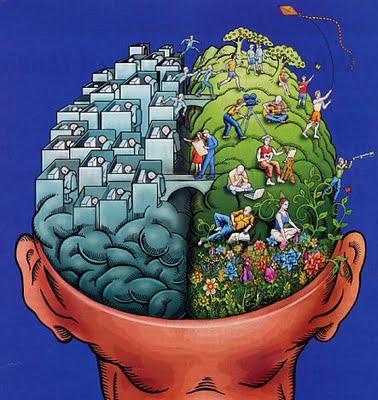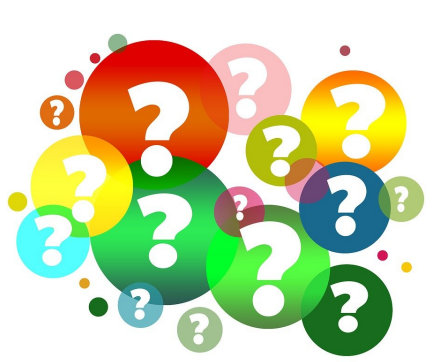Get attention when you start your speech.
You have probably heard that adage about the average person having a shorter attention span than a goldfish. Though that internet axiom has been largely disproved, there's no mistaking this fact: you have only a few seconds to grab and hold the attention of your audience. So make those first words count with one of these ways to get attention when you start your speech.
How?
By carefully planning an attention-getter to start off your speech. Start off strong and you're well on your way to a dynamic speech.
Five ways to get attention when you start your speech
Retirement speech . . . anniversary speech . . . 90th birthday speech . . . all of these special speeches need attention-getters. to grab people's attention. Choose one of these techniques to start out and you'll have your audience zoned in on your message from your very first words. I've also included some examples that will help you get attention when you start your speech.
 Body language also counts to help you start your speech with power.
Body language also counts to help you start your speech with power.Tell a story or joke
Use an intriguing quote
Give a surprising fact or piece of data
Ask a question
Present a problem (which your speech will solve)
Get their attention with a story or a joke
The power of the story is legendary. What story should you tell to start off? Anything that will connect with your main point. You can talk about a personal experience, something from your childhood, an anecdote about a famous person or a tale from history.
We are conditioned from childhood to connect through stories. When I was teaching and would say to the class, "Let me tell you a story," everyone froze. Immediately I could sense their attention focused on me. We all love a good story. In fact, a speaker I once heard who was a finalist in the Toastmasters International Speaking Competition gave this formula for the perfect speech:
- Tell a story . . . make a point
- Tell a story . . . make a point
- Tell a story . . make a point
- End with a conclusion that ties your points into your central message.
Three stories and three points that support your central message.
One reason storytelling is such a powerful tool for speakers is because stories engage our brains in an emotional way. We connect what we hear with our experience.

To drive this point home, I sometimes tell the story of the blind man with the sign. Briefly it goes like this:
A blind man on a street in Paris was sitting with a tin cup and a sign that read, "I'm blind, please help." A few people would drop a coin in his cup, but most passed by, hurrying their pace as they crossed in front of him. Finally one person came up and asked the blind man if he could write something different on the sign. "Be my guest," the blind man replied. So the person flipped the sign over, wrote on the back side and put the sign back down.
Several days later that person stopped by the blind man to asl how things were going. The blind man was incredulous. "I can't believe the difference," he said. "People started dropping coins and bills. I had to empty my tin three times yesterday."
"What did you put on the sign?" the blind man asked. "I simply wrote, 'Spring is coming but I cannot see it'." the person replied.
After telling that story, I would ask listeners what the blind man was wearing . . . what his hair looked like . . . what kind of person wrote on the sign. The answers varied because each person used his own imagination and experiences to visualize this story as I told it.
That process of internalizing stories gives them the power to capture and hold attention. Use that power to start your speech.
Jokes are also great ways to get attention when you start your speech. Tell a joke with a good sense of timing and your listeners will love you. The element of surprise or the humorous twist delights us. And there's nothing else like making people laugh to prime your audience at the start of your speech. But one caveat . . . you need to tell a joke confidently and without giving away the punch line too early. And by all means, don't spoil it with an introduction. I've heard speakers say, "Now I'm going to tell you a little joke." Say that and you've lost the element of surprise.
Call on the wisdom of others to start your speech
Quotes make great attention getters to start your speech because there are so many clever sayings that can support your central message. The important thing to remember in starting your speech with a quote is to say it clearly and dramatically. Also be sure to tell listeners where it came from in a later sentence or two.
For example, if you are speaking about a retiree who has served an organization well, you might find a quote about the rewards of hard work.
- Work at something you love and you'll never have to work a day in your life. That comes from Confucious.
- The only place where success comes before work is in the dictionary. Vid Sassoon said that but a prime example pf hard work bringing success is the one we are honoring today.
- Or for a person with a good sense of humor. . . . Bill Gates once said, I choose a lazy person to do a hard job because a lazy person will find an easier way to do it.
If you are doing an anniversary speech or speaking at a senior birthday, do a little research and you can find a great quote that applies to the person. Quotes are an easy way to get attention at the start of your speech. .
Use a surprising fact or some data as your attention-getter.
People are naturally curious. When you tell them something that is surprising or almost unbelievable, you've piqued their interest and they will listen to learn more. Your most wanted response here is, "No kidding?" Your data or surprising fact should, of course, relate to your main message. But using this technique works well with listeners who are inclined to want "just the facts."
Suppose you are doing a talk about man's best friend. Or perhaps about close relationships. You could start off with a little known fact such as, 45 percent of dogs in this country sleep in their owner's' beds. Or, a study by the American Animal Hospital Association found that 35 percent of dog owners talk to their dogs on the phone while they are away or leave messages for them on the answering machine.
Source
Ask a question -- actual or rhetorical.
 Image by Gerd Altmann from Pixabay
Image by Gerd Altmann from PixabayYou don't have to get an answer if you ask a rhetorical question. Your goal is to make people think what their answer would be. So if you were doing a talk about the impact of music on our lives, you could ask something such as, What was your favorite song when you were in high school?. Everyone will mentally go back to their high school days and run through a catalogue of favorite music.
You might follow up with the question, What was it about that song that spoke to you? You've engaged your audience without having them say a word.
Of course you can ask an actual question and solicit answers as a way to grab attention at the beginning. That also works because it directly engages individuals but everyone will listen to their answers and decide whether they agree or disagree.
Present a problem (that your speech will help solve)
Describe a situation caused by the problem you want to address. The more vivid your description, the more stickiness it will have with your audience. We're all familiar with the poignant appeals to help hungry children or abandoned animals. We remember them because they touch our emotions. If your speech is about how to deal with a challenging issue, talk about the effects of doing nothing. That way you'll set the stage for actions you want your listeners to take.
Why do these attention-getting tactics work?
Listening is a passive activity. Active listening -- paying close attention to what is being said instead of thinking ahead to how you will respond -- takes work. And if you are sitting and listening to a speaker who does not do anything to engage you, your brain tends to be idle.
As a speaker, what you must do is break through the noise of distractions and engage the brains of your listeners. If you can get their attention, listeners will absorb what you are saying rather than yielding to the temptation to pick up their phones or mentally check their to-do lists.
These attention-getters trick the brain into thinking about what you said. People interpret messages based on their own experiences which means that they must work to establish their own context to understand the message. So these attention getters might prompt the following thoughts.
 Image by Tumisu from Pixabay.
A speaker makes a successful connection when the brain of the listener works to create a context for the message.
Image by Tumisu from Pixabay.
A speaker makes a successful connection when the brain of the listener works to create a context for the message.- How does that quote apply to me?
- What is my answer to that question?
- I can visualize the people in that story.
- Hah . . . I get the joke. That's a good one!
Your next challenge as a speaker, once you have the attention of your audience, is to keep it. You can use different tactics to engage with your listeners.
But that's a topic for another page.
All advice on this site was written by humans. No copy was written by AI.
Please support real writers.


